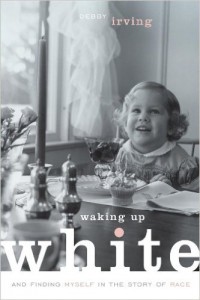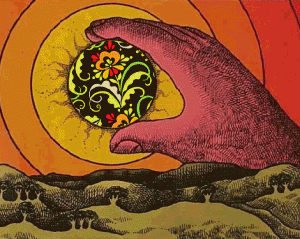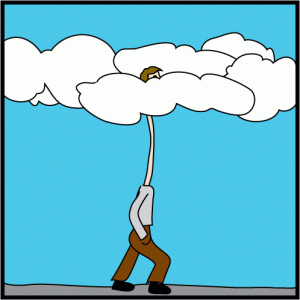Waking Up White
 I leave on Saturday morning for the next Community Dharma Leader (CDL) training retreat. Diversity is a big topic in this program and one of the ways we’re working through it is by reading assigned texts (for example: Waking Up White, by Debby Irving), then meeting in small groups (in my case, by phone/Skype) to discuss our thoughts/feelings/concerns, using prepared questions such as:
I leave on Saturday morning for the next Community Dharma Leader (CDL) training retreat. Diversity is a big topic in this program and one of the ways we’re working through it is by reading assigned texts (for example: Waking Up White, by Debby Irving), then meeting in small groups (in my case, by phone/Skype) to discuss our thoughts/feelings/concerns, using prepared questions such as:
* What motivates you to be a part of this process?
* What concerns, fears, or other feelings arise as this conversation opens?
* What potential do you see for your role as a Dharma leader?
* When did you first recognize yourself as having a racial identity?
* What has supported your growing awareness about racial identity?
* What feelings arise in response to the idea of privilege?
***
There are four “modules” in the program we’re following, which is based on the work done by White Awake. I’ve only completed the first one. But already, it seems to have had a surprisingly enlivening effect on my thinking about myself as a white woman, born in the 1950s, into a professional middle-class family in the American midwest.
I was expecting to feel a lot of guilt.
But that’s not it. Guilt is a narrowing of one’s focus. What I’m getting from this exploration is just the opposite….a widening, deepening, more responsive awareness to the interconnected aspects of race/class/ethnicity/identity for me and for others.
Now what to do about it.
Stay tuned.
Hard Core
 Wow, just when I thought I’d gone about as far as I could go into Dharma-Study-Geekdom (having finished reading the Majjhima Nikaya, Samyutta Nikaya, and about to start in on the Anguttara Nikaya), I get an email from Spirit Rock announcing a new, 6-week on-line course of study on the Abhidhamma!
Wow, just when I thought I’d gone about as far as I could go into Dharma-Study-Geekdom (having finished reading the Majjhima Nikaya, Samyutta Nikaya, and about to start in on the Anguttara Nikaya), I get an email from Spirit Rock announcing a new, 6-week on-line course of study on the Abhidhamma!
The Nikayas are one thing, but the Abhidhamma….well, let me just list some of what the course will cover:
* The four kinds of empirical realities — mind, mental factors, materiality (which are conditioned) and Nibbana (which is unconditioned)
* The 52 mental factors that arise in various combinations to create each moment of experience
* The five levels of jhana (states of absorption) that must be developed in order to attain concentration
* The realms of consciousness (the knowing capacity of the mind) and the stream of consciousness that constitutes mental life
* The elements of material reality and how they condition consciousness
* Kamma (the law of cause-and-effect) and how it conditions consciousness
* Dependent origination
* Buddhist personality types
* The Progress of Insight
***
Not for the faint of heart, I’ll grant you. But I snapped it up!
The course is A Field Guide to the Mind: Practical Abhidhamma for Meditators, taught by Steve Armstrong. There will be six weekly hour-long video recorded talks, six weekly half-hour video Q&A sessions plus audio guided meditations, a 36-page downloadable handbook, and three live conference calls. It begins Oct 15 and runs through Nov 12. Cost is $120.
Interested? Click here for more info.
It’s All About…..
 At Sunday Sangha, I talked about being in the middle of “The Movie of Me” (that mental narration about me and my response to whatever’s going on around me that seems to run endlessly in my head…I don’t like this…I don’t like that…I wish I had…I used to have…why don’t I have…how can I get…how can I get out of…etc etc etc etc).
At Sunday Sangha, I talked about being in the middle of “The Movie of Me” (that mental narration about me and my response to whatever’s going on around me that seems to run endlessly in my head…I don’t like this…I don’t like that…I wish I had…I used to have…why don’t I have…how can I get…how can I get out of…etc etc etc etc).
The idea of that stream of thought being a movie came from something Phillip Moffitt wrote about in Dancing with Life. He suggests challenging the ego’s desire to always be in charge by: Giving Up Being the Star of Your Own Movie.
“The unfolding of events that make up your life is like a movie, is it not? And you interpret every scene or event from the vantage point of being the star of your movie–is it good or bad for you, do you like it or not, and so on. Once you renounce being the star of your own movie, you begin to see the unfolding of each scene and the movie as a whole from multiple perspectives. You don’t forsake your role in the movie, but once you cease making it be all about you, the movie creates less anxiety and you are more able to live from your core values.”
Excellent suggestion.
What To Add
 Today my friend celebrated the life…and honored the death…of her sister. For my part: I bore witness. And offer a poem.
Today my friend celebrated the life…and honored the death…of her sister. For my part: I bore witness. And offer a poem.
Zero Plus Anything Is a World, by Jane Hirshfield
Four less one is three.
Three less two is one.
One less three
is what, is who,
remains.
The first cell that learned to divide
learned to subtract.
Recipe:
add salt to hunger.
Recipe:
add time to trees.
Zero plus anything
is a world.
This one
and no other,
unhidden,
by each breath changed.
Recipe:
add death to life.
Recipe:
love without swerve what this will bring.
Sister, father, mother, husband, daughter.
Like a cello
forgiving one note as it goes,
then another.
I Wonder If I Should Help
 For today, more from the interview with Jack Kornfield I quoted yesterday.
For today, more from the interview with Jack Kornfield I quoted yesterday.
In Zen, they say there are only two things: you sit and you sweep the garden. And it doesn’t matter how big the garden is. That is, you learn to quiet the mind and open the heart and to remember in that stillness what really matters. Those are the values of the heart and who you are. You discover that who you are is loving-awareness itself, incarnated into this mystery. And as you do, the sense of connection to life shows itself. You don’t even have to cultivate it. As you get quiet, you feel it and you know it. And then you get up from your cushion and you sweep the garden. If people are hungry, you feed them. If people are sick and you have medicine, you offer it, because they’re part of you.
When you hurt your hand, if you’re slicing tomatoes in the kitchen and you accidentally cut yourself, you don’t go, “Oh, that poor hand. I wonder if I should help it. Should I do something about it?” It’s you! It’s part of you. It’s so deeply obvious that you wash it and you put on a Band-Aid or whatever. And as you quiet the mind and open the heart, you begin to realize that the world is you, that you are the world. And so it becomes a spontaneous and beautiful expression of your fundamental Buddha-nature, your fundamental goodness, that you tend the world.
Without mindfulness or compassion training, it’s easy to get overwhelmed and think, “Well, all the problems of the world are too great. I just have to get through the day and try as best I can.” Mindfulness makes it easier to step out of the sense of being overwhelmed. You see with clearly. And you realize: “I can respond in some way. I have some agency and capacity. And I can add my piece.”
And by adding your drop into the river–the river of justice or the river of mutual care or the river of caring for the environment–it nurtures you, and it nurtures the world.
***
(read the full interview here)
The Mystery All Around Us
 It will be my turn to lead the Sunday Sangha group this coming weekend. I wanted to continue our conversation about the teaching/experience of “non-self,” but I wasn’t sure what I would bring as a reading, until I opened my email and found this: an interview with Jack Kornfield, recently published in Spirituality and Health magazine. Here’s an excerpt.
It will be my turn to lead the Sunday Sangha group this coming weekend. I wanted to continue our conversation about the teaching/experience of “non-self,” but I wasn’t sure what I would bring as a reading, until I opened my email and found this: an interview with Jack Kornfield, recently published in Spirituality and Health magazine. Here’s an excerpt.
Q: You’ve mentioned “the mystery” a couple of times during this conversation. What do you mean?
A: One of the great gifts of a contemplative moment or practice is that as we quiet the mind and soften the heart and look around, we see the mystery all around us, whether it’s of trees or rainfall or the forms of the earth or our own human body.
How did we get in here — this strange, bipedal form with a hole at one end, into which we regularly stuff dead plants and animals and grind them up and glug them down through the tube for energy, and poop them out the other end? We ambulate by falling in one direction and catching ourselves, and falling in the other direction and catching ourselves. We have the capacity to make sounds by pushing air by our vocal cords and shaping our mouths, and I can say “Golden Gate Bridge,” and you can picture that.
No one really knows exactly how that happens. They know how the sodium-potassium balance changes in the auditory nerve and goes to the auditory centers of the brain. But beyond that, that interdependence, the web in which we live is so mysterious. And it’s the same web that spins the galaxies and turns our seasons.
So, to meditate, in some way, is to be able to stop and listen to the dance or the music of life with a sense of reverence and connectedness and awe. And from that, then tend your life and tend this world beautifully.
Q: And yet, some not-so-positive stuff also comes up when we meditate, such as grief and despair. Is it important to focus on the positive stuff on a spiritual journey?
No. A spiritual path opens you to the 10,000 joys and the 10,000 sorrows. It cracks the heart open to weep at the loss of species. It allows you to honorably feel the tears that you carry from your own personal trauma or from the death and loss or tragedy around you personally and more broadly.
But we can also become loyal to our suffering. And suffering, while it’s vast and can be tended with great compassion, is not the end of the story.
The end of the story is love and freedom. And this is possible for you. We don’t do it by ignoring the suffering around us, but by knowing that who we are and what life is, is greater than that.
***
Read the full interview here.
I Hear the Sigh of Happiness
 This is the poem Christine read at Sunday Sangha last weekend (a very sweet little group that would love to have you visit, by the way).
This is the poem Christine read at Sunday Sangha last weekend (a very sweet little group that would love to have you visit, by the way).
Only When I Am Quiet and Do Not Speak
by Jane Hirshfield
Only when I am quiet for a long time
and do not speak
do the objects of my life draw near.
Shy, the scissors and spoons, the blue mug.
Hesitant even the towels,
for all their intimate knowledge and scent of fresh bleach.
How steady their regard as they ponder,
dreaming and waking,
the entrancement of my daily wanderings and tasks.
Drunk on the honey of feelings, the honey of purpose,
they seem to be thinking,
a quiet judgement that glistens between glass doorknobs.
Yet theirs is not the false reserve
of a scarcely concealed ill-will,
nor that other, active shying: of pelted rocks.
No, not that. For I hear the sigh of happiness
each object gives off
if I glimpse for even an instant the actually instant–
As if they believed it possible
I might join
their circle of simple, passionate thusness,
their hidden rituals of luck and solitude,
the joyous gap in them where appears in us the pronoun I.
Remembering
 My dear friend’s sister died yesterday. Today, I turn to Mary Oliver:
My dear friend’s sister died yesterday. Today, I turn to Mary Oliver:
West Wind, 8
The young, tall English poet–soon to die, soon to sail on his small boat into the blue haze and then the storm and then under the gray waves’ spinning threshold–went over to Pisa to meet a friend; met him; spent with him a sunny afternoon. I love this poet, which means nothing here or there, but is like a garden in my heart. So my love is a gift to myself. And I think of him, on that July afternoon in Pisa, while his friend Hunt told him stories pithy and humorous, of their friends in England, so that he began to laugh, so that his tall, lean body shook, and his long legs couldn’t hold him, and he had to lean up against the building, seized with laughter, abundant and unstoppable; and so he leaned in the wild sun, against the stones of the building, with the tears flying from his eyes–full of foolishness, howling, hanging on to the stones, crawling with laughter, clasping his own body as it began to fly apart in the nonsense, the sweetness, the intelligence, the bright happiness falling, like tiny gold flowers, like the sunlight itself, the lilt of Hunt’s voice, on this simple afternoon, with a friend, in Pisa.
Come Back!
 “Mr. Duffy lived a short distance from his body.” (James Joyce, Dubliners)
“Mr. Duffy lived a short distance from his body.” (James Joyce, Dubliners)
I’ve felt like that. I get completely caught up in the relentless stream of narration that goes on in my head. Whole scenes from the past getting played out again and again…often with changes in the dialogue so I come off sounding better or smarter or more appealing in some way…or scenes where something is happening in the future…often with me sounding so convincing or well-informed or so obviously right in some way that everyone around me can’t help but agree with me…etc etc etc….all staring ME in some past or future situation that has nothing at all to do with the situation I’m actually in!
This is called delusion. It’s repetitive. It’s ridiculous. And it’s not helpful.
So what to do?
Come back to the body.
When I notice the sound track starting up…or more likely, that it’s been going on for a while…I can take a minute to check out where my body is (at my desk, in my house) and what this actually FEELS like right now (there’s tension in my shoulder; the side of my hand feels hot where it’s resting on my laptop).
And then I can choose: do I want to keep playing the sound track to the “Story of Me” or do I want to do something to release some of that tension in my shoulder…and/or maybe it’s time to turn off the laptop!
Restraining Yourself and Loving Others
 What speaks to me today are these lines from Verses from the Center by Nagarjuna, translated by Stephen Batchelor:
What speaks to me today are these lines from Verses from the Center by Nagarjuna, translated by Stephen Batchelor:
Buddha taught that acts
Are motives of the mind
And words and gestures
You are moved to express.
Restraining yourself
And loving others
Are seeds that bear fruit
In this life and beyond.
